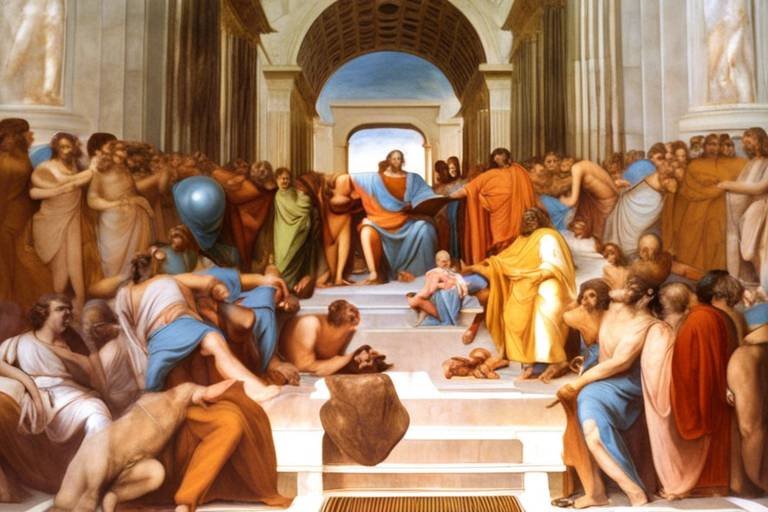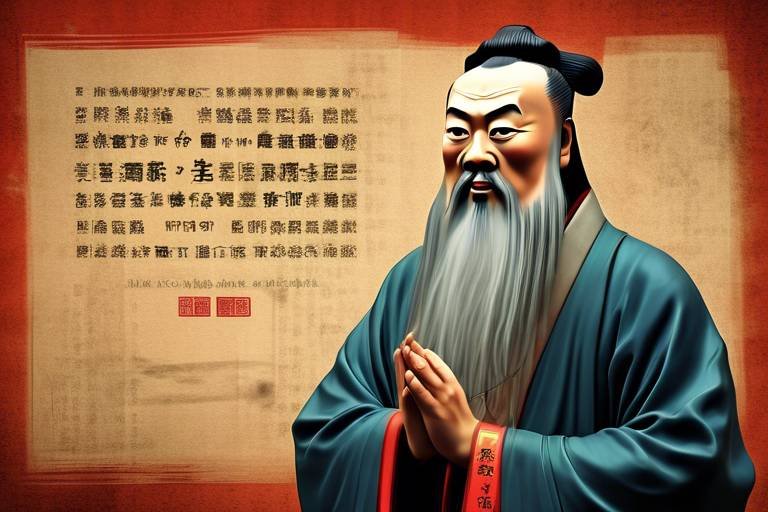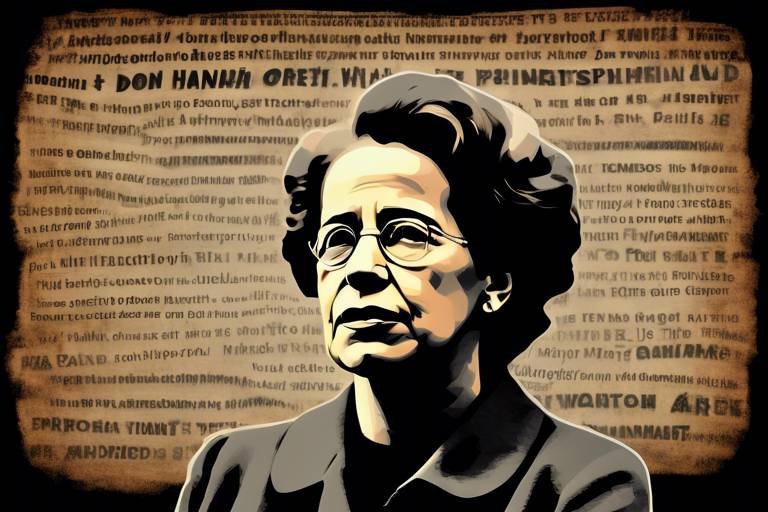What Does Plato's Republic Teach us About Politics?
Plato's Republic is not just a philosophical text; it's a profound exploration of the very fabric of society and governance. Written over two millennia ago, it still resonates with contemporary political thought, sparking debates about justice, leadership, and the ideal state. Imagine a world where rulers are not just politicians but wise individuals, equipped with knowledge and virtue. Wouldn't that be a breath of fresh air in today's political landscape? Plato challenges us to rethink our perceptions of power and authority, urging us to consider what it truly means to lead justly. His ideas lay the groundwork for discussions about the responsibilities of leaders and the ethical foundations of governance, making them incredibly relevant in our current political climate.
At its core, the Republic serves as a blueprint for an ideal society, where the structure is meticulously designed to promote harmony and justice. Plato envisions a state governed by philosopher-kings—individuals who possess the wisdom and insight necessary to make informed decisions for the collective good. This concept raises an intriguing question: Shouldn't our leaders be the most knowledgeable among us? Plato's argument suggests that without wisdom, leadership becomes a gamble, often leading to chaos and injustice. His emphasis on the importance of virtue in governance reminds us that effective leadership is not merely about power; it's about serving the common good.
Moreover, Plato's exploration of justice is a central theme throughout the Republic. He defines justice not just as a legalistic concept but as a form of harmony that exists both within the individual and the state. This idea prompts us to reflect on our own lives: Are we just to ourselves? Are our actions contributing to a harmonious society? By advocating for a moral foundation in governance, Plato encourages us to seek a balance between individual desires and the needs of the community, which is crucial for maintaining social order.
As we delve deeper into the Republic, we encounter the fascinating notion of the tripartite soul, which Plato uses to illustrate how different parts of our psyche influence justice. He breaks it down into three components: the rational, the spirited, and the appetitive. Each part plays a unique role, and understanding this structure can help us navigate our own lives and societal interactions. For instance, the rational part seeks truth and wisdom, while the appetitive part craves physical pleasures. When these elements are in balance, both individuals and society can flourish. However, when desire overshadows reason, chaos ensues, leading to a breakdown of order. This delicate balance is essential for a just society, and it serves as a reminder that our personal choices have broader implications.
In discussing the guardians of the state—Plato's philosopher-kings—we see the importance of knowledge and virtue in leadership. These guardians are not merely rulers; they are individuals who prioritize the well-being of the state above their own interests. Plato's insistence on the need for wise rulers challenges us to think critically about our own leaders today. Are they truly serving the public, or are they driven by personal ambitions? This inquiry is vital in fostering a political environment that values altruism and wisdom, qualities that are desperately needed in our current political landscape.
Education emerges as a critical theme in the Republic, shaping the philosopher-king's ability to govern wisely. Plato argues that a rigorous and comprehensive educational system is essential for cultivating virtuous leaders. This notion begs the question: How well are we educating our leaders today? The allegory of the cave serves as a powerful metaphor for this journey from ignorance to enlightenment. It illustrates how knowledge transforms individuals, enabling them to lead effectively and make informed decisions. In a world inundated with misinformation, the importance of education cannot be overstated.
As we reflect on the impact of Plato's ideas today, it's clear that they continue to influence modern political philosophy. Discussions surrounding governance, justice, and the role of education in shaping leaders are as relevant now as they were in ancient Greece. Plato's teachings encourage us to engage in critical conversations about the nature of power and the responsibilities that come with it. In doing so, we can aspire to create a society where justice prevails, and leaders are held accountable for their actions.
- What is the main theme of Plato's Republic? The main theme revolves around justice and the ideal state, exploring how governance should be structured to achieve harmony.
- Who are the philosopher-kings? Philosopher-kings are rulers who govern based on wisdom and virtue, prioritizing the common good over personal interests.
- How does Plato define justice? Plato defines justice as a harmony that exists both within individuals and the state, advocating for a moral foundation in governance.
- What is the allegory of the cave? The allegory of the cave illustrates the philosopher's journey from ignorance to enlightenment, highlighting the importance of knowledge in effective leadership.

The Ideal State
Plato's vision of the ideal state is nothing short of revolutionary. He imagines a society meticulously structured and governed by philosopher-kings, individuals who possess not only intelligence but also a profound sense of virtue. In Plato's eyes, the rulers of a state should be those who have ascended beyond the shadows of ignorance, much like a person emerging from a dark cave into the bright light of the sun. This metaphor illustrates the importance of wisdom and the transformative power of knowledge in leadership.
In this ideal state, the emphasis is placed on the collective well-being rather than individual desires. Imagine a well-tuned orchestra, where every musician plays in harmony with the others. Just as each instrument contributes to a beautiful symphony, every citizen in Plato's ideal state has a role that contributes to the overall harmony and functionality of society. The philosopher-kings, equipped with their understanding of the greater good, ensure that the laws and policies reflect the moral and ethical standards necessary for a flourishing community.
But what does it take to become a philosopher-king? Plato argues that these rulers must undergo a rigorous educational process, one that not only imparts knowledge but also cultivates the virtues of justice, wisdom, and temperance. This education is not merely academic; it involves a deep understanding of the human soul and the nature of reality. The philosopher-king must be able to discern the true essence of things, much like a skilled gardener who knows when to prune and when to let things grow.
To illustrate this concept further, let's consider the three classes that Plato proposes within his ideal state:
| Class | Role | Virtue |
|---|---|---|
| Rulers (Philosopher-Kings) | Govern and make laws | Wisdom |
| Guardians (Warriors) | Defend the state | Courage |
| Producers (Workers) | Provide for the economy | Temperance |
In this framework, each class has its own responsibilities, and when functioning correctly, they create a balanced and just society. The rulers, guided by their wisdom, create laws that reflect the needs and virtues of the citizens, while the guardians protect these laws and the producers ensure that the society has the resources it needs to thrive. This intricate web of interdependence highlights the importance of unity and collaboration in achieving the ideal state.
Ultimately, Plato's ideal state is a vision of a society where the common good prevails over individual interests. It's a world where leaders are not merely politicians, but wise individuals who understand the complexities of human nature and the importance of fostering a just and harmonious community. In a way, it challenges us to reflect on our own governance systems and consider how we can strive for a society that mirrors these ideals.
- What is the main idea behind Plato's ideal state?
Plato's ideal state emphasizes governance by philosopher-kings who prioritize wisdom and virtue to ensure justice and harmony in society. - How does Plato define justice?
Justice, according to Plato, is the harmony within both the individual and the state, achieved when each part performs its appropriate role. - Why are philosopher-kings important?
Philosopher-kings are essential because they possess the knowledge and virtue necessary to govern wisely and prioritize the common good over personal interests.
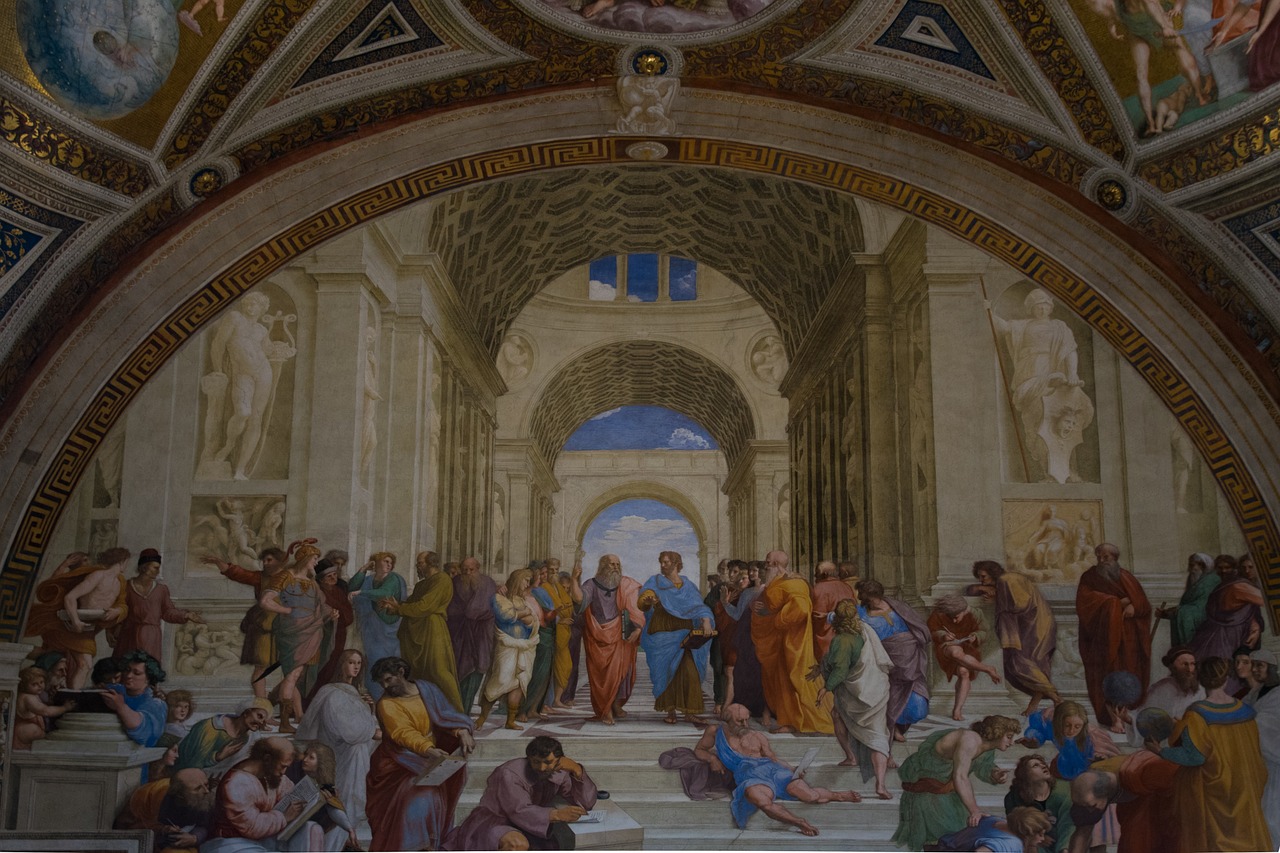
Justice in the Republic
In Plato's Republic, the concept of justice is not just a mere political term; it is the very foundation upon which a harmonious society is built. Plato intricately weaves the idea of justice into the fabric of both the individual and the state, proposing that true justice is achieved when each part fulfills its designated role. This notion resonates deeply, as it suggests that a well-ordered society mirrors a well-ordered soul. But what does that really mean?
To understand this, we must delve into the idea that justice is akin to harmony. Just as a symphony requires each instrument to play its part in tune with the others, a society flourishes when its citizens, leaders, and institutions operate in balance. Plato argues that when everyone performs their duties according to their nature and abilities, the result is a just society. This leads us to the question: how do we define the roles within this societal framework?
Plato presents a tripartite division of society, which corresponds to the three parts of the soul: the rational, the spirited, and the appetitive. Each class within the society reflects these elements:
- Rulers (Philosopher-Kings): Represent the rational part, making wise and informed decisions.
- Guardians (Warriors): Embody the spirited part, defending the state and maintaining order.
- Producers (Workers): Reflect the appetitive part, providing for the material needs of the society.
This classification is essential because it illustrates that justice is not merely about laws or regulations; it is about the moral foundation that binds the society together. Plato emphasizes that a just society is one where each class respects its role and contributes to the common good. When individuals act in accordance with their nature, the state achieves a state of equilibrium, which is crucial for its survival and prosperity.
Moreover, Plato's exploration of justice leads us to consider the importance of virtue. In his view, justice is inherently linked to virtue, suggesting that a just person is a virtuous person. This connection raises an interesting point: can a society be truly just if its leaders lack virtue? Plato argues that without virtuous leaders, the state is doomed to corruption and chaos. Therefore, the cultivation of virtue among rulers is paramount.
As we reflect on these ideas, we might ask ourselves: how do they apply to our modern political landscape? The quest for justice, as Plato illustrates, is not a static goal but a dynamic process that requires constant vigilance and commitment. It challenges us to consider our roles within our communities and to strive for a balance that fosters justice. In today’s world, where political discord and inequality often dominate discussions, the teachings of Plato remind us of the timeless relevance of justice as a guiding principle.
- What is the main idea of justice in Plato's Republic?
Justice in Plato's Republic is defined as harmony within the individual and the state, where each part fulfills its role in a balanced manner. - How does Plato's tripartite soul relate to justice?
The tripartite soul illustrates that justice involves the rational, spirited, and appetitive parts working together, similar to how different classes in society must function cohesively. - Why are philosopher-kings important in achieving justice?
Philosopher-kings are essential because they embody wisdom and virtue, ensuring that decisions are made for the common good rather than personal gain.
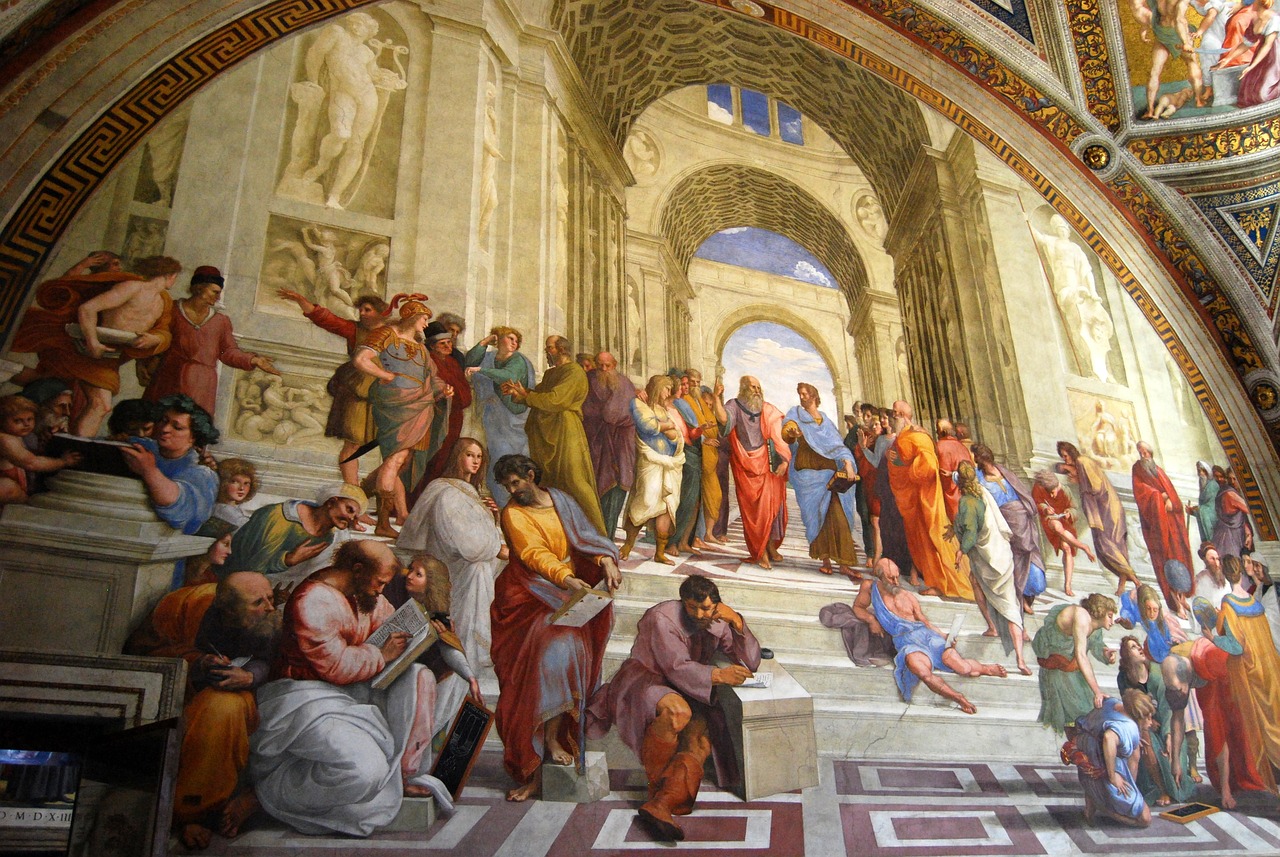
The Tripartite Soul
In Plato's Republic, the concept of the tripartite soul is a fascinating framework that illustrates how our inner workings reflect the structure of society itself. Plato divides the soul into three distinct parts: the rational, the spirited, and the appetitive. Each of these components plays a crucial role in achieving both personal and societal justice. Think of the soul as a well-orchestrated symphony, where each instrument must harmonize to create a beautiful melody. If one instrument dominates, the music becomes chaotic, much like a society where one aspect of the soul overshadows the others.
The rational part of the soul is akin to a wise conductor, guiding the other two components with logic and reason. This part seeks truth and knowledge, striving for understanding and wisdom. In the context of governance, this is where the philosopher-kings derive their authority. They are the ones who understand the greater good, making decisions that benefit the entire state rather than just their own interests.
Next is the spirited part, which can be compared to the passionate musicians in our symphony. This aspect of the soul embodies emotions such as courage, ambition, and honor. It drives individuals to take action, to stand up for what they believe in, and to defend their community. However, when this part overpowers the rational, it can lead to impulsive decisions driven by anger or pride, disrupting the harmony of both the individual and society.
Finally, we have the appetitive part, representing our desires and basic instincts—think of it as the rhythm section that keeps the beat. This part is responsible for our cravings for food, pleasure, and material possessions. While these desires are natural and necessary for survival, Plato warns that if they are left unchecked, they can spiral out of control, leading to chaos and disorder. A society that prioritizes indulgence over reason and spirit risks losing its moral compass.
To maintain a balanced soul, Plato argues that all three parts must work in harmony. Just as a well-tuned orchestra produces a symphonic masterpiece, a well-ordered soul leads to a just individual and, by extension, a just society. This balance can be achieved through education and self-discipline, enabling individuals to cultivate their rational faculties while keeping their spirited and appetitive tendencies in check.
In summary, Plato's tripartite soul not only provides insight into personal psychology but also serves as a blueprint for societal governance. A society led by philosopher-kings, who understand the importance of balancing reason, spirit, and appetite, is more likely to achieve true justice and harmony. Understanding this concept is vital for anyone interested in the foundations of political theory and the dynamics of human behavior.
- What is the tripartite soul? The tripartite soul is a concept introduced by Plato, dividing the soul into three parts: rational, spirited, and appetitive, each contributing to personal and societal justice.
- How does the tripartite soul relate to governance? Plato suggests that a just society requires leaders who can balance these three parts of the soul, particularly through the wisdom of philosopher-kings.
- Why is balance important in the tripartite soul? Balance ensures that no single aspect overshadows the others, promoting harmony within the individual and the community, leading to a just society.

The Role of Reason
In Plato's vision of governance, reason stands as the cornerstone of a just society. Without it, chaos reigns, and decisions become mere whims driven by emotions or desires. Imagine a ship navigating through turbulent waters; without a skilled captain to steer, it risks capsizing. Similarly, a society devoid of rational thought is destined to drift aimlessly, susceptible to the tempests of irrationality and conflict. Plato believed that the rational part of the soul must take the helm, guiding both individuals and leaders toward ethical choices that benefit the collective.
To illustrate this, consider the three parts of the soul: the rational, the spirited, and the appetitive. The rational aspect is akin to the wise captain, the spirited part represents the crew's courage and ambition, while the appetitive side embodies the ship's cravings for comfort and luxury. When reason leads, harmony ensues; however, when appetite or spirit takes charge, disorder and strife emerge. This balance is crucial not only for personal well-being but also for societal stability.
Plato argues that leaders, or philosopher-kings, must be deeply rooted in reason. Their decisions should be informed by knowledge and a commitment to the greater good, rather than personal gain. This is where education becomes vital. A well-educated ruler understands the complexities of human nature and the intricacies of governance, enabling them to navigate the murky waters of political life with wisdom and foresight.
Moreover, the role of reason extends beyond the rulers to encompass every citizen. Plato envisioned a society where all individuals cultivate their rational faculties, fostering a community where informed discussions and ethical debates thrive. Such a society would not only be resilient in the face of challenges but also capable of evolving and adapting to new ideas and circumstances.
In summary, reason is not merely a tool for decision-making; it is the very essence of a just society. It empowers individuals to rise above base instincts, promoting a culture of wisdom and virtue that resonates throughout the state. As we reflect on Plato's teachings, it becomes evident that our contemporary political landscape could greatly benefit from a renewed emphasis on rational discourse and ethical leadership.
- Why is reason important in Plato's Republic? Reason is essential for achieving justice and harmony in both the individual and the state, guiding ethical decision-making.
- How does Plato define the role of philosopher-kings? Philosopher-kings are rulers educated in wisdom and virtue, prioritizing the common good over personal interests.
- What is the tripartite soul? The tripartite soul consists of the rational, spirited, and appetitive parts, each contributing to personal and societal justice.
- How can modern society benefit from Plato's ideas? By emphasizing rational discourse and ethical leadership, modern society can foster a more just and harmonious political environment.

The Influence of Desire
Desire, in Plato's philosophy, is a double-edged sword. On one hand, it fuels our passions and drives us to pursue what we want, while on the other, it can spiral out of control, leading to chaos and discord within both individuals and society. Imagine a ship navigating through stormy seas; if the captain is swayed by every gust of wind, the ship risks capsizing. Similarly, unchecked desires can steer individuals away from the path of reason and justice, creating turbulence in the social order.
Plato asserts that desires must be kept in check to maintain harmony. He likens the human soul to a charioteer controlling two horses: one representing rationality and the other representing desire. If the charioteer is wise, he can guide the horses to work together, leading to a balanced and just life. However, if desire reigns supreme, it can lead to reckless behavior and societal dysfunction. This idea emphasizes the need for balance between reason and appetite, highlighting that a well-ordered soul is essential for a well-ordered state.
To further illustrate this concept, let’s consider the implications of desire in modern governance. When leaders allow personal desires—such as the thirst for power or wealth—to overshadow their responsibilities, it can lead to corruption and injustice. Plato believed that a society governed by philosopher-kings, who possess the wisdom to regulate their desires, would be more just and harmonious. In this way, the influence of desire is not just a personal struggle but a societal one, requiring collective awareness and action.
In summary, the influence of desire is profound and multifaceted. It shapes our decisions and actions, both personally and politically. By recognizing and regulating our desires, we can work toward a more just and balanced society. As Plato would argue, wisdom and virtue must guide us in this endeavor, ensuring that our desires align with the greater good.
- What is the main idea behind Plato's concept of desire?
Plato views desire as a powerful force that can lead to chaos if left unchecked. He emphasizes the importance of balancing desire with reason to achieve personal and societal harmony. - How does desire affect leadership according to Plato?
Leaders who are swayed by personal desires risk making unethical decisions. Plato advocates for philosopher-kings who can regulate their desires and prioritize the common good. - Can desire ever be beneficial in governance?
Yes, when aligned with reason and guided by wisdom, desire can motivate individuals to pursue noble goals and foster positive change within society.
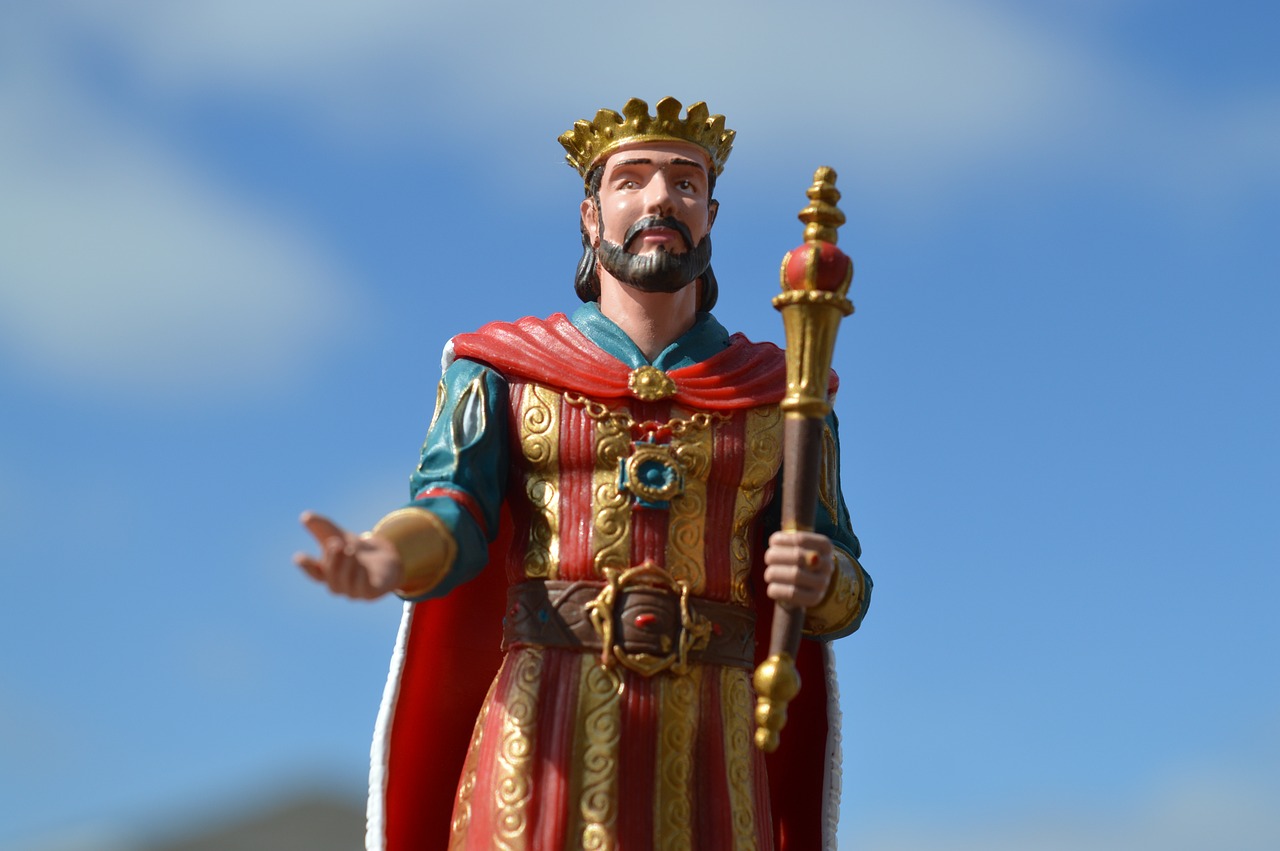
The Guardians of the State
In Plato's Republic, the concept of the guardians is pivotal to understanding the structure of his ideal state. These guardians, often referred to as philosopher-kings, are not just rulers; they are individuals who possess a profound understanding of justice, virtue, and the greater good. Imagine a ship sailing through treacherous waters. It’s not enough to have a captain; that captain must be wise, knowledgeable, and able to navigate through storms. Similarly, in Plato's vision, the guardians are those who steer the state toward harmony and prosperity.
The role of the guardians is multifaceted. They are tasked with making decisions that affect the entire community, ensuring that every action taken is in the best interest of the state. This responsibility requires a unique blend of qualities:
- Wisdom: Guardians must possess deep knowledge and understanding of the world, allowing them to make informed decisions.
- Virtue: A strong moral compass is essential, guiding their actions and decisions toward what is just and right.
- Commitment to the Common Good: Personal interests must be set aside in favor of what benefits the entire society.
Plato argues that these qualities are not innate but cultivated through a rigorous education system. The guardians undergo extensive training, much like athletes preparing for the Olympics. They must hone their skills, both intellectually and morally, to ensure they are fit to lead. This education is not merely academic; it encompasses physical training, music, and philosophy, all aimed at shaping well-rounded individuals capable of ruling wisely.
Moreover, the guardians are expected to live communally, sharing resources and not owning private property. This is a radical departure from typical governance models. By eliminating personal wealth from the equation, Plato seeks to prevent corruption and ensure that the guardians remain focused solely on their duties. Consider this analogy: if a gardener tends to a garden filled with weeds, the only way to ensure the flowers bloom is to remove the weeds entirely. In this case, the weeds represent personal desires that could hinder the guardians' ability to serve the state.
In conclusion, the guardians of the state in Plato's Republic embody the ideal of leadership grounded in wisdom, virtue, and a commitment to the common good. Their role is crucial in maintaining justice and harmony within society, making them the backbone of Plato's vision of an ideal state.
- Who are the guardians in Plato's Republic? The guardians are philosopher-kings tasked with ruling the state based on knowledge and virtue.
- What qualities do guardians need? Guardians must possess wisdom, virtue, and a commitment to the common good, prioritizing the needs of society over personal interests.
- How are guardians educated? They undergo a comprehensive education that includes physical training, philosophy, and the arts to prepare them for leadership.
- Why do guardians live communally? Communal living prevents corruption and ensures that guardians remain focused on their duties rather than personal wealth.

Education and the Philosopher-King
In Plato's Republic, education is not just a mere formality; it is the very foundation upon which the philosopher-king is built. Imagine a sculptor chiseling away at a block of marble to reveal a magnificent statue within. Just as the sculptor requires skill, patience, and vision, so too does the philosopher-king need a robust education to cultivate the wisdom and virtue necessary for effective governance. Plato believed that only through a rigorous and comprehensive educational system could individuals ascend to the level of philosopher-kings, capable of ruling with both knowledge and moral integrity.
Plato outlines a multi-stage educational process that is designed to nurture the mind and soul of future leaders. This process begins with basic education in subjects like mathematics and music, which are essential for developing a sense of harmony and order. As students progress, they delve into more complex subjects, including dialectics and philosophy, which encourage critical thinking and the pursuit of truth. This journey is crucial, as it equips future rulers with the tools they need to discern right from wrong, allowing them to make decisions that benefit the entire state.
Furthermore, education in Plato's ideal state is not merely academic; it also encompasses moral and ethical training. The philosopher-king must embody the principles of justice and virtue, acting as a role model for the citizens. This concept can be likened to a lighthouse guiding ships safely to shore. Just as the lighthouse stands firm in the stormy seas, the philosopher-king must remain steadfast in their commitment to the common good, illuminating the path for others to follow.
To illustrate the importance of education in shaping leaders, let’s consider the following table that outlines the key stages of the educational process in Plato's Republic:
| Stage | Focus | Purpose |
|---|---|---|
| Early Education | Mathematics, Music | Develop harmony and order in the mind |
| Physical Training | Sports, Physical Education | Foster discipline and health |
| Higher Education | Dialectics, Philosophy | Encourage critical thinking and the pursuit of truth |
| Moral Education | Ethics, Leadership | Instill virtues necessary for governance |
In essence, the philosopher-king's education is a holistic endeavor that prepares them not just to rule, but to inspire. The journey from ignorance to enlightenment, famously depicted in Plato's Allegory of the Cave, serves as a metaphor for this transformative educational experience. As the philosopher emerges from the shadows of ignorance into the light of knowledge, they gain the clarity needed to lead wisely. This allegorical journey highlights the profound impact that education has on developing leaders who can navigate the complexities of governance with a clear moral compass.
Ultimately, the philosopher-king's educational journey is a testament to the belief that true leadership is not merely about authority; it is about understanding, empathy, and a deep commitment to the welfare of the state. Plato's vision reminds us that the quality of our leaders is directly tied to the quality of their education, making it imperative for contemporary societies to prioritize the development of future leaders through comprehensive and meaningful educational frameworks.
- What is the role of education in Plato's Republic?
Education is fundamental in shaping philosopher-kings who possess the wisdom and virtue necessary for effective governance. - Why does Plato emphasize moral education?
Moral education ensures that leaders prioritize the common good and act as ethical role models for society. - How does the Allegory of the Cave relate to education?
The Allegory illustrates the transformative journey from ignorance to knowledge, underscoring the importance of enlightenment in leadership.

The Allegory of the Cave
Plato's Allegory of the Cave is one of the most profound metaphors in Western philosophy, encapsulating the struggle for enlightenment and the transformative power of knowledge. Imagine a group of prisoners who have been chained inside a dark cave for their entire lives, facing a blank wall. Behind them, a fire casts shadows on the wall from objects passing in front of it. The prisoners can only see these shadows, mistaking them for reality. This cave represents the world of appearances, where most people live, unaware of the deeper truths that lie beyond their limited perception.
When one prisoner finally breaks free and ascends to the outside world, he is initially blinded by the sunlight. This moment symbolizes the discomfort and confusion that often accompany the pursuit of knowledge. However, as his eyes adjust, he begins to see the world in its true form—vibrant, full of color, and rich in detail. This journey from darkness to light illustrates the philosopher's path towards understanding, where knowledge is not merely an accumulation of facts but a profound transformation of the soul.
In this allegory, Plato suggests that the philosopher-king, who has escaped the cave, holds the responsibility to return and enlighten others. However, this is no easy task. The other prisoners, comfortable in their ignorance, may resist the truth, preferring the familiar shadows to the daunting reality outside. This highlights a crucial aspect of governance: the challenge of leading those who are not yet ready to embrace a higher understanding of justice and virtue.
The allegory serves as a reminder that education is not just about imparting knowledge; it’s about fostering a deeper awareness of oneself and the world. It calls for a rigorous educational system that encourages critical thinking, self-reflection, and the pursuit of wisdom. Plato believed that only through such an education could individuals develop the capacity to rule justly and effectively.
In a modern context, the Allegory of the Cave prompts us to reflect on our own lives. Are we content with the shadows on the wall, or are we brave enough to seek the light? It challenges us to question our beliefs, confront our biases, and strive for a more profound understanding of our society and ourselves. As we navigate through the complexities of contemporary politics, the lessons from the cave remain relevant, urging us to prioritize knowledge and virtue in our leaders.
- What is the main lesson of the Allegory of the Cave? The main lesson is about the journey from ignorance to knowledge and the responsibility of the enlightened to help others see the truth.
- How does the Allegory relate to modern politics? It highlights the importance of educated leaders who prioritize the common good and encourages citizens to seek deeper understanding rather than accepting superficial realities.
- Why is education important in the context of the Allegory? Education is essential as it equips individuals with the ability to think critically and make informed decisions, fostering a more just society.

The Role of the Ruler
In Plato's Republic, the role of the ruler, or the philosopher-king, is not just a position of power; it is a profound responsibility laden with ethical implications. The philosopher-king is envisioned as a wise and virtuous leader, someone who has transcended the ordinary concerns of daily life to grasp the greater truths of existence. This ideal ruler prioritizes the common good over personal interests, embodying the essence of altruism and wisdom. But what does it mean to be a ruler in this context? It's about more than just making laws or decisions; it's about cultivating a society where justice and harmony reign.
Plato argues that rulers must possess a deep understanding of justice, not merely as a concept but as a lived reality. They should be equipped with the ability to discern what is truly beneficial for the state and its citizens. This requires a commitment to lifelong learning and self-improvement, as the philosopher-king must continually seek knowledge and wisdom. Imagine a gardener tending to a garden; if the gardener is not knowledgeable about the plants, their needs, and the environment, the garden will wither. Similarly, a ruler who lacks understanding will lead a society into chaos.
Moreover, Plato emphasizes that the ruler's decisions must be guided by reason rather than desire. This is where the balance between the tripartite soul comes into play. A ruler must navigate the intricate interplay of rational thought, spirited ambition, and appetitive desires. When these elements are in harmony, the ruler can make decisions that are not only just but also sustainable. For instance, consider the potential consequences of a ruler who allows personal desires to dictate policies. Such a ruler may prioritize short-term gains over long-term stability, ultimately jeopardizing the welfare of the state.
In addition to wisdom and reason, the philosopher-king must also exhibit moral integrity. The ruler is a role model, setting the standard for ethical behavior within the society. When citizens observe their leaders acting with honesty and integrity, they are more likely to emulate those values. Thus, the ruler's character is crucial in shaping the moral fabric of the community. A ruler who embodies these virtues can inspire trust and loyalty among the populace, fostering a sense of unity and collective purpose.
In conclusion, the role of the ruler in Plato's Republic is multifaceted and deeply significant. It is not merely about holding a position of power but about embodying the principles of wisdom, justice, and moral integrity. The philosopher-king must strive to create a society where the common good is prioritized, and the citizens are encouraged to pursue knowledge and virtue. This ideal may seem lofty, but it serves as a guiding light for contemporary leaders, reminding us that true governance is about serving the people, not the self.
- What qualities should a ruler possess according to Plato?
Plato emphasizes the importance of wisdom, moral integrity, and a commitment to the common good as essential qualities for a ruler.
- How does Plato's concept of the philosopher-king differ from modern political leaders?
Unlike modern political leaders who may prioritize personal gain or popularity, the philosopher-king is expected to prioritize knowledge and virtue in governance.
- What is the significance of education for rulers in Plato's Republic?
Education is crucial as it shapes the ruler's ability to govern wisely and ethically, ensuring they can make informed decisions for the benefit of society.

The Impact of Plato's Ideas Today
Plato's political theories, though ancient, resonate profoundly in our contemporary world. His ideas about governance, justice, and the role of education are not merely relics of philosophical inquiry; they are foundational concepts that continue to shape modern political thought. For instance, the concept of the philosopher-king has sparked discussions about the **qualifications** and **responsibilities** of our leaders. Are they truly serving the common good, or are they swayed by personal ambitions? This question remains at the forefront of political discourse today.
Moreover, Plato’s emphasis on education as a tool for developing virtuous leaders is more relevant than ever. In an age where misinformation can spread like wildfire, the need for a well-informed populace is critical. Plato's vision encourages us to prioritize education that fosters critical thinking and ethical reasoning. This is essential for creating leaders who can navigate the complex challenges of modern governance.
In our current political climate, the idea of justice as harmony within society offers a lens through which we can analyze issues of inequality and social justice. Plato’s assertion that true justice is achieved when each part of society performs its role effectively is a powerful reminder that **everyone** has a part to play in the collective well-being. This principle can guide modern policies aimed at reducing disparities and promoting inclusivity.
To illustrate the ongoing relevance of Plato's ideas, consider the following table that outlines how his concepts are reflected in today's political systems:
| Plato's Concept | Modern Equivalent | Implications |
|---|---|---|
| Philosopher-Kings | Expert Leaders | Importance of informed decision-making in governance |
| Justice as Harmony | Social Justice Movements | Focus on equality and fairness in society |
| Education for Rulers | Leadership Training Programs | Need for ethical and knowledgeable leaders |
Additionally, Plato's allegorical narratives, such as the Allegory of the Cave, remain potent metaphors for our struggle against ignorance and the pursuit of truth. They remind us that the journey towards enlightenment is fraught with challenges, but it is essential for effective leadership and governance. In today’s world, where misinformation can cloud our judgment, this allegory serves as a call to seek deeper understanding and clarity.
In summary, the impact of Plato's ideas on modern politics is undeniable. His theories not only provide a framework for evaluating our political systems but also challenge us to aspire to a higher standard of leadership and civic responsibility. As we navigate the complexities of contemporary governance, revisiting Plato’s insights can inspire us to foster a political environment that values wisdom, justice, and the common good.
- How do Plato's theories apply to modern democracy?
Plato's theories encourage a focus on informed leadership and the moral responsibilities of rulers, which can enhance democratic practices. - What role does education play in Plato's political philosophy?
Education is crucial in shaping leaders who can govern wisely and justly, emphasizing the need for a system that promotes critical thinking. - Can Plato's ideas help address current social issues?
Yes, his concept of justice as harmony can guide policies aimed at achieving social equity and addressing systemic inequalities.
Frequently Asked Questions
- What is the main theme of Plato's Republic?
The central theme of Plato's Republic is the concept of justice, both in the individual and the state. Plato explores how a just society can be achieved through the governance of philosopher-kings who embody wisdom and virtue, emphasizing the need for harmony and moral integrity in political leadership.
- Who are the philosopher-kings in Plato's ideal state?
Philosopher-kings are the rulers in Plato's ideal state, chosen for their knowledge and virtue. They are individuals who have undergone rigorous education and possess the ability to make wise decisions for the common good, prioritizing the welfare of the society over their personal interests.
- What is the tripartite soul according to Plato?
Plato's concept of the tripartite soul divides the human psyche into three parts: the rational, the spirited, and the appetitive. Each part plays a role in achieving personal and societal justice, with reason guiding the other two to maintain balance and harmony within the individual and the state.
- How does education play a role in governance according to Plato?
Education is fundamental in Plato's Republic as it shapes the philosopher-kings' ability to govern wisely. A comprehensive educational system is essential for cultivating leaders who are knowledgeable and capable of making informed decisions that benefit society as a whole.
- What does the Allegory of the Cave signify?
The Allegory of the Cave illustrates the philosopher's journey from ignorance to enlightenment. It symbolizes the transformative power of knowledge, highlighting how understanding and insight are crucial for effective leadership and governance.
- How do Plato's ideas influence modern political thought?
Plato's political theories continue to resonate in contemporary discussions about governance, justice, and the importance of education in shaping leaders. His emphasis on moral integrity and the need for wise rulers encourages ongoing debates about the role of ethics in politics today.

